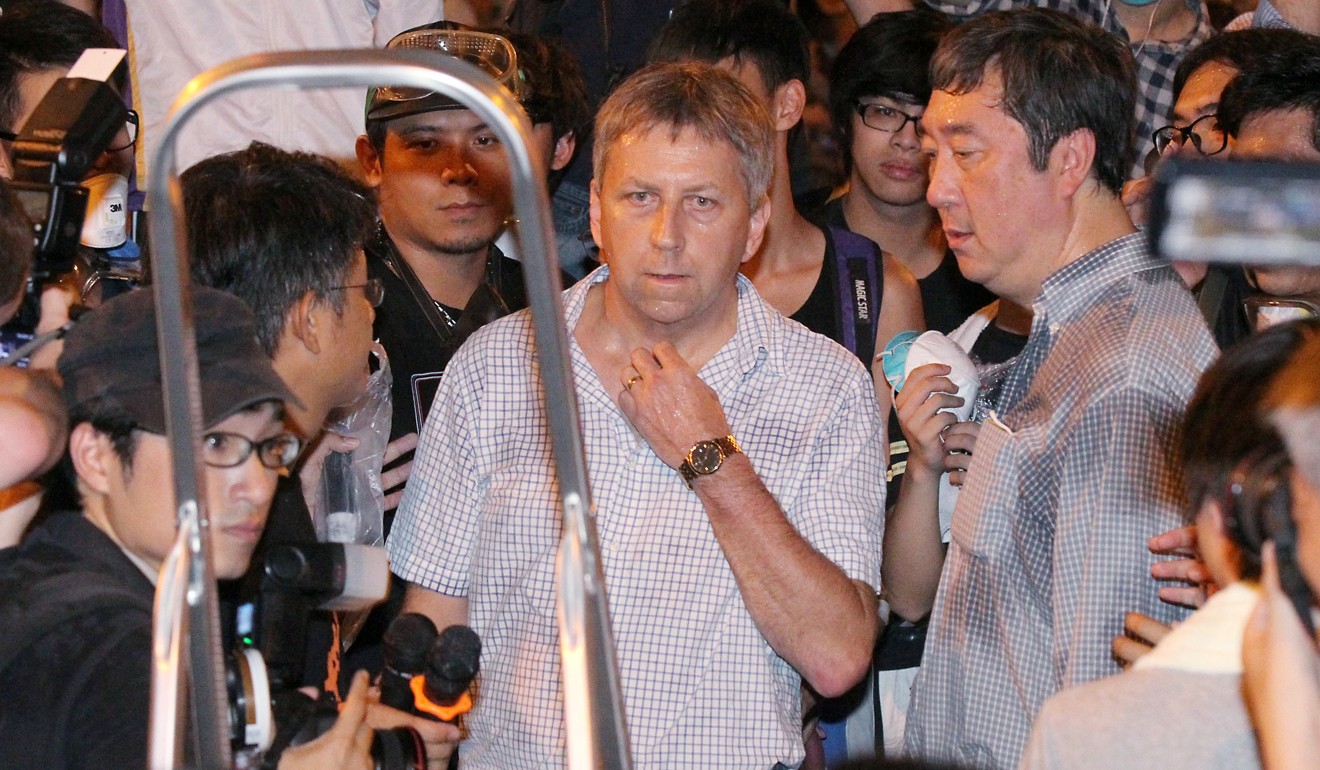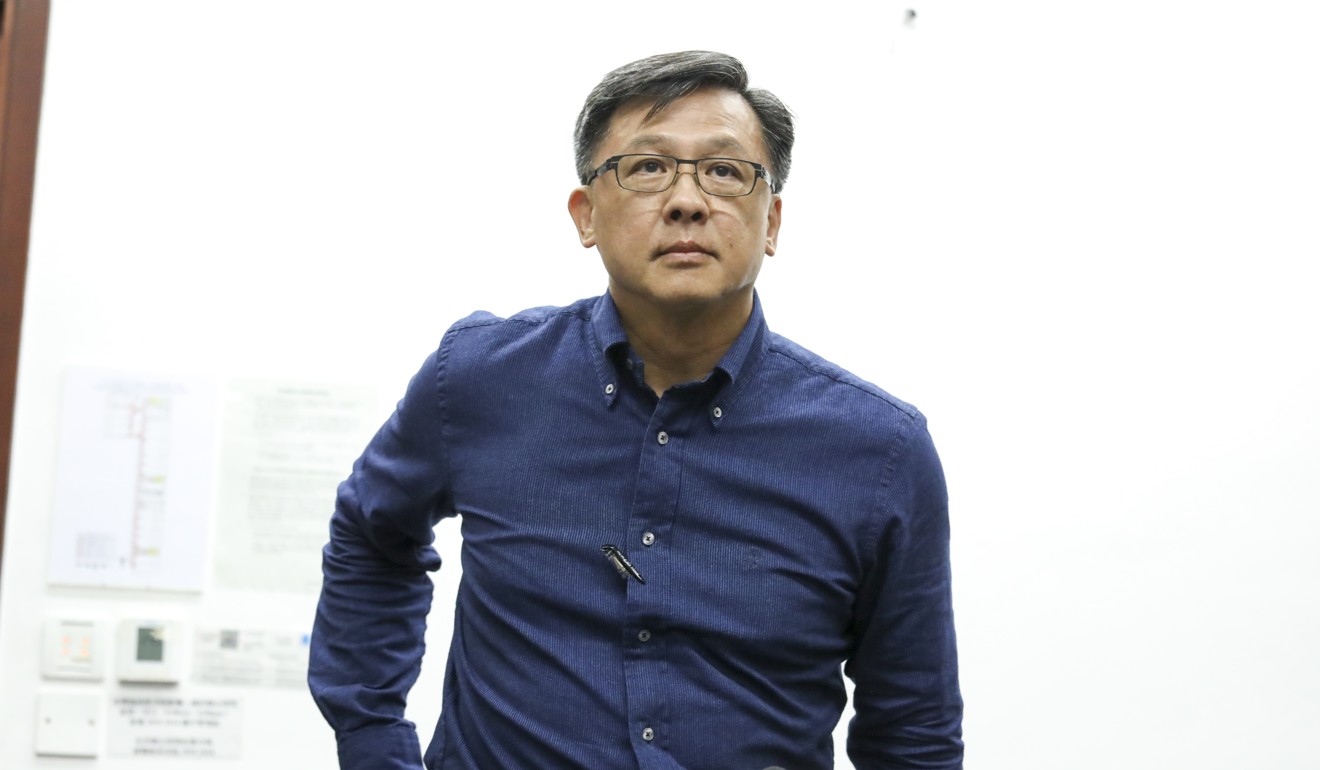
Lingnan University president attends Yuen Long protest with colleagues as ‘observer’, says he is worried about dangers facing students and staff
- Varsity president Leonard Cheng asks students to take care of safety and not to be involved in clash
- Around 1,000 students, staff and alumni march on campus earlier in the day, demanding expulsion of lawmaker Junius Ho from governing council
President of Hong Kong’s Lingnan University Leonard Cheng Kwok-hon on Saturday took the unusual step of attending the march in Yuen Long as an “observer” for about half an hour, two hours before police officers fired tear gas at protesters.
Lingnan University is one of Hong Kong’s eight publicly-funded universities.
On October 2, 2014, University of Hong Kong vice-chancellor Peter Mathieson and his Chinese University counterpart Joseph Sung Jao-yiu went down to Admiralty to talk to the crowd in front of the Chief Executive’s Office, pleading with students to avoid conflict and not destroy the movement’s good name.
LIVE: Police fire tear gas at Hong Kong protesters surrounding Yuen Long village
Police said the protest in Yuen Long on Saturday was an unlawful assembly, as they had rejected the organisers’ application for a letter of no objection.
Extradition protests risk repeating errors of Occupy 2014
Cheng arrived in Yuen Long at 3pm alongside the university’s vice-president Joshua Mok Ka-ho and associate vice-president Lau Chi-pang.
Cheng said he was attending the protest only as an “observer” worried about the dangers facing students and staff, but young protesters still cheered, clapped their hands and chanted: “Protect the president!”
“The students have asked me to come to Yuen Long as an observer of today’s events,” Cheng said.
“As the president, what I care about the most is the safety of our students, teachers and alumni.”

He also said he had long reminded them to take care of their own safety and not to be involved in any clash.

“This is my bottom line,” he said. “Today I’m not here to protest or march, I’m here because many of our teachers, students and alumni are here. I’m here to understand the situation.”
How the extradition bill protests shook Hong Kong
Cheng’s presence in the Yuen Long protest came after organisers said around 1,000 students, staff and alumni of the university attended a rally on the campus earlier in the day, calling for pro-Beijing lawmaker Junius Ho Kwan-yiu to be expelled from its governing council.
Photos have also emerged of Ho having dinner with people dressed in white in Yuen Long on the night of the attack, though it has not yet been established whether they were involved in the violence at the station.

Ho’s parents’ graves were desecrated earlier this week, while his office was also trashed.
A group of students and alumni, including former lawmaker Nathan Law Kwun-chung of the Demosisto party, marched to Cheng’s office after the rally and demanded a dialogue.
Cheng came out and met them, and said he would propose holding a special meeting for the university’s council to discuss the issue.
Cheng also said he was concerned about the protest scheduled in the afternoon.
Law told Cheng: “As a university chief, it’s your responsibility to protect the students. Would you go to Yuen Long with us today?”
Cheng replied: “If you are going to Yuen Long to express your views peacefully and rationally, I can go there with the vice-president to take a look.”
Cheung Chor-yung, a senior teaching fellow at the City University’s department of public policy, said Cheng was doing “what every intellectual should do”, even when he knew it would do little to change anything.
“Cheng was being responsible. He came out after 1,000 people expressed their discontent, how about our chief executive?” he asked.
“The protests have continued for more than a month, how many university presidents or intellectuals have been doing their job?”
Cheung also said he appreciated Cheng for going to Yuen Long even though he knew police regarded the march as unlawful.
“Compared to the major developments in the city, the lawfulness of the protest was only a minor, technical issue,” he said.


